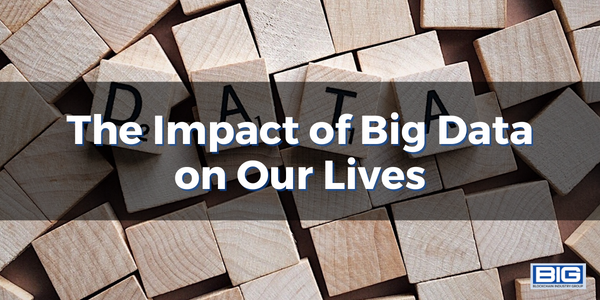
Big data is all around us, and it’s changing the way we live our lives. From online shopping recommendations to personalized advertisements, big data is shaping our world in ways that we may not even be aware of. In this article, we’ll explore the impact of big data on our lives and why it’s such a big deal.
What is Big Data?
Big data refers to the massive amount of information generated by the digital world. It includes everything from social media posts and online shopping habits to weather patterns and financial transactions. With the increasing number of devices and the rise of the Internet of Things, big data is growing at an exponential rate. In fact, it’s estimated that 90% of all the data in the world has been generated in the last two years.
How Big Data is Used
Big data is used by organizations and companies to gain insights and make better decisions. For example, a retail company may analyze customer purchase history to identify trends and make personalized recommendations. In the medical field, big data is used to analyze patient data and identify potential health risks. Big data can also be used to identify and prevent fraud, improve supply chain management, and even predict natural disasters.
The Benefits of Big Data
There are many benefits to using big data, and it’s changing the way we live our lives for the better.
Here are just a few examples:
- Improved Customer Experiences: Big data can be used to personalize the customer experience and make recommendations based on individual preferences and behaviors.
- Better Health Outcomes: Big data can be used to analyze patient data and identify potential health risks, leading to earlier diagnosis and improved treatment outcomes.
- More Efficient Business Operations: Companies can use big data to streamline their operations and improve their bottom line. For example, they can analyze supply chain data to identify inefficiencies and reduce waste.
- Crime Prevention: Big data can be used by law enforcement to identify and prevent crime, making our communities safer.
The Challenges of Big Data
While there are many benefits to using big data, there are also some challenges that must be addressed.
Here are just a few examples:
- Privacy Concerns: As more personal information is collected and analyzed, there are concerns about privacy and who has access to this information.
- Bias: Big data algorithms can perpetuate existing biases and perpetuate discrimination. For example, a biased algorithm may not accurately predict the creditworthiness of certain individuals based on their race or gender.
- Complexity: The sheer amount of data generated can be overwhelming, and it can be difficult to analyze and make sense of it all.
10 Canadian Future Technology Companies
—
10 Ways Medical Techs Will ‘Invade’ Our Bodies
—
13 Risks Posed by Future Technologies
The Future of Big Data
The impact of big data on our lives will only continue to grow in the coming years. As more devices are connected and more data is generated, the potential for big data to shape our world will only increase. However, it’s important that we address the challenges and ensure that big data is used in a responsible and ethical manner.
In conclusion, big data is changing the way we live our lives, and it has the potential to bring about significant benefits. However, it’s important that we address the challenges and ensure that big data is used in a responsible and ethical manner. By doing so, we can harness the power of big data to create a better future for all.



